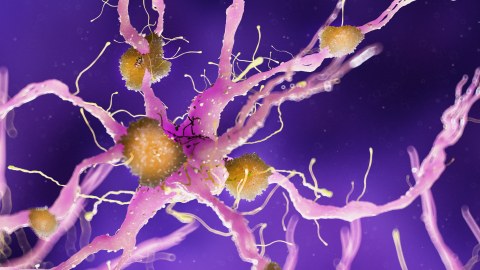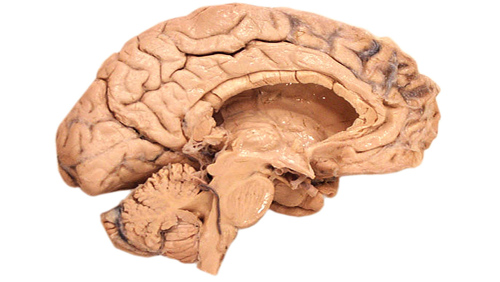Oxytocin improves memory in mice with Alzheimer’s-like symptoms

- Oxytocin is often called the “love hormone” because of its role in pair bonding, but it also serves many other functions in the brain.
- A recent study examined whether the hormone could alleviate symptoms of dementia and Alzheimer’s disease in mice.
- The results suggest that the hormone can reduce Alzheimer’s-related memory loss, at least in a rodent model.
Nose drops containing a derivative of oxytocin improve Alzheimer’s-like symptoms in mice, according to new research published in the journal Neuropsychopharmacology Reports.
The study is one of just a few examining whether oxytocin can rescue cognitive function in live animals. Its authors argue that the hormone should be considered as a treatment for the memory loss that occurs in Alzheimer’s disease and other forms of dementia.
Oxytocin is popularly known as the “love hormone” because of its role in pair bonding, but it also serves many other functions in the brain, including the modulation of synaptic mechanisms such as long-term potentiation (LTP), which underlies learning and memory.
Previously, Junpei Takahashi of Tokyo University of Science and his colleagues impaired LTP in slices of mouse brain tissue by adding amyloid-beta, a peptide associated with Alzheimer’s, and found that oxytocin reverses this effect.
Oxytocin and cognitive impairment
In the new study, Takahashi and his colleagues examined the effects of oxytocin on cognitive impairments in live mice. To do so, they first injected amyloid-beta peptide into the cerebral ventricles of juvenile mice, and confirmed that this impaired their performance on two maze tasks designed to test spatial working memory.
Oxytocin injected into the ventricles did indeed improve the animals’ performance on both tests, while blocking the oxytocin receptor inhibited its benefits.
Intraventricular injection is, however, invasive and impractical in a clinical setting, so the researchers tried to deliver oxytocin via the nose. Nasal drops containing oxytocin did not rescue the animals’ spatial memory, but a novel derivative did.
The derivative consists of structurally modified oxytocin containing peptide sequences that enable it to travel from the nasal epithelium into the brain, and penetrate nerve cell membranes more efficiently.
Nasal administration of this derivative, labelled with a fluorescent marker, showed that it was widely distributed throughout the brain. This is the first study to show that oxytocin delivered directly into the brain, and an oxytocin derivative delivered nasally, can alleviate memory loss in a mouse model of Alzheimer’s disease.
Oxytocin is widely administered to induce labor or improve contractions during childbirth, and as a commercially available nasal spray is touted as a wonder drug that reduces anxiety and improves well-being.
One recent clinical trial found that oxytocin nasal spray did not improve social interactions in young children with autism, and there are currently several small trials testing the hormone as a treatment for obesity and tinnitus.
This new study suggests that nasally delivered oxytocin derivative could also be a useful clinical treatment that slows cognitive decline in patients with Alzheimer’s disease.





